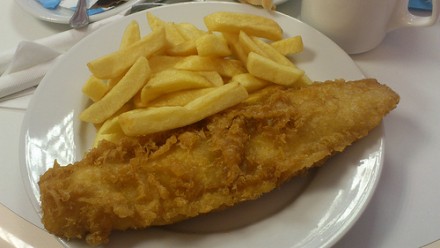Fish is one of our most valuable sources of protein food. World wide, people obtain about 25% of their animal protein from fish and shell fish. About 35% of all fish is eaten fresh, chilled or frozen. It is also cured or canned (16% each) or made into oil and fish meal (32%). Fish and marine products are used as medicine, ground into vitamins, or processed into cosmetics and perfumes, lubricants, varnishes, soap and margarine. Whales, seals and oysters are valued for many of the above uses.
Industries process many inferior fish and fish waste products into glue, livestock feed and fertilizers. Scientists often use fish, especially goldfish, for experiments and medical research.
Many people enjoy keeping goldfish, guppies, tetras and other fish as pets in home aquariums. Angling is a popular pastime in all parts of the world. In many maritime nations such as Peru, Japan, China, and Russia, fish forms a valuable daily diet as well as export item. Countries located close to continental shelves where warm and cold currents converge as in the N.W. Atlantic (Grand Bank, near Newfoundland), N.E. Atlantic (near Dogger's Bank in the north sea) and N.W. Pacific (Eastern Russia and Japan) enjoy great prosperity brought by the fishing industry.
Industries process many inferior fish and fish waste products into glue, livestock feed and fertilizers. Scientists often use fish, especially goldfish, for experiments and medical research.
Many people enjoy keeping goldfish, guppies, tetras and other fish as pets in home aquariums. Angling is a popular pastime in all parts of the world. In many maritime nations such as Peru, Japan, China, and Russia, fish forms a valuable daily diet as well as export item. Countries located close to continental shelves where warm and cold currents converge as in the N.W. Atlantic (Grand Bank, near Newfoundland), N.E. Atlantic (near Dogger's Bank in the north sea) and N.W. Pacific (Eastern Russia and Japan) enjoy great prosperity brought by the fishing industry.

